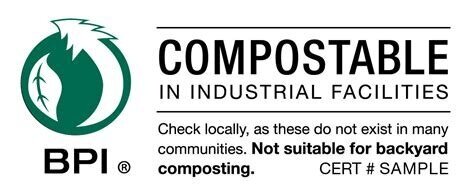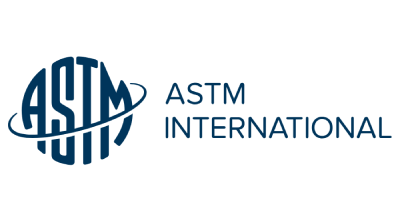What It Means To Have BPI Compostable Products
Now, more than ever, families and businesses need to have environmentally friendly products. Fortunately, as landfills rise, consumers have caught on to the fact that what happens to a product after its use is just as important as how it is used. This awareness has led to a widespread increase in the use of sustainable materials, many of them being compostable. In addition, rigid standards and certification processes have become rightfully commonplace to ensure that compostable products will truly break down after use in the right environment. This is where BPI Compostable certified products can help.
What is “BPI Certified Compostable?”

This is an example of what you might see on a case or on the actual product itself.
The Biodegradable Products Institute (BPI) is the national leader in certifying the real-world biodegradability and compostability of food service tableware. Since 2002, they have made it their mission to certify products whose materials can biodegrade completely without leaving harmful residues behind. Their famous compostable logo can be seen on many of the products you consume. This certification indicates that the product has been independently tested and has been verified to break down completely in a commercial compost facility after use.
According to their website, BPI’s overall goal is “Scalable diversion of organic waste to composting, by verifying that products and packaging will successfully break down in professionally managed composting facilities, without harming the quality of that compost.”
They aim to accomplish these goals through education, the adoption of scientifically based standards, and alliances with other organizations.
Having products with BPI Compostable certification is essential as it tests the real-world conditions for composting, rather than strictly relying on lab results. In addition, as the environmentally-conscious space expands, it helps to ensure that the lack of a certification logo easily refutes false claims about a product’s compostability.
What is the ASTM D6400 Standard?
Like the BPI Compostable certification, the ASTM Standard is a globally recognized mark by ASTM International (formerly known as the American Society for Testing and Materials), indicating that a product has undergone significant and independent testing. There are many different standards underneath the ASTM umbrella, but the ASTM D6400 test is the high mark for compostable products.

Testing for varying degrees of compostability is only one of the many material tests that ASTM International performs.
The ASTM 6400 lab test ensures that bio-plastics and products made from PLA plastics will become compost in an industrial composting facility. This standard is directly connected with the BPI certification, and for products to be BPI certified, they must also meet ASTM D6400 testing standards.
Green Paper Products & Compostability Certification
For our team now and in the future, it’s critical to offer disposable, certified compostable products that our customers can trust. Because of this, most of them meet ASTM D6400 standards and are BPI Compostable certified. To find products that meet these standards, head to our website, and on each product page, you’ll be able to see what certifications they have along with the tests they have undergone.
Stay tuned for future updates and news regarding BPI Compostable products and certification changes.
Updated 09/18/2024